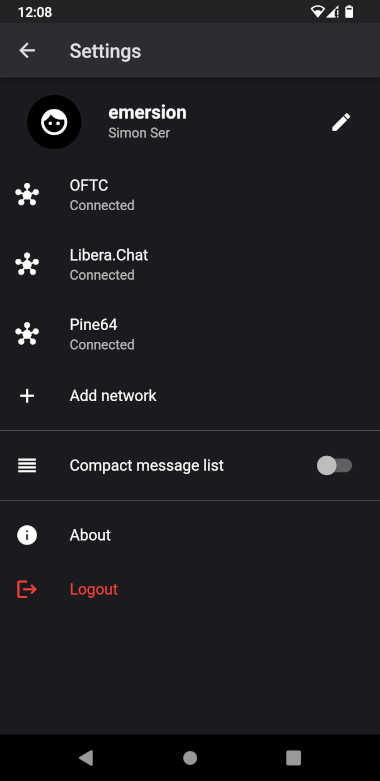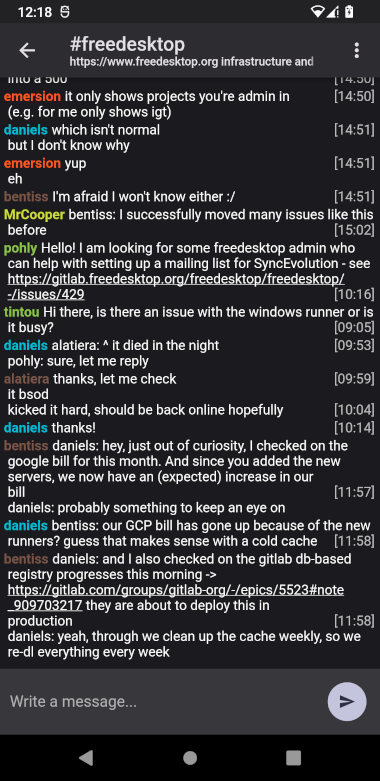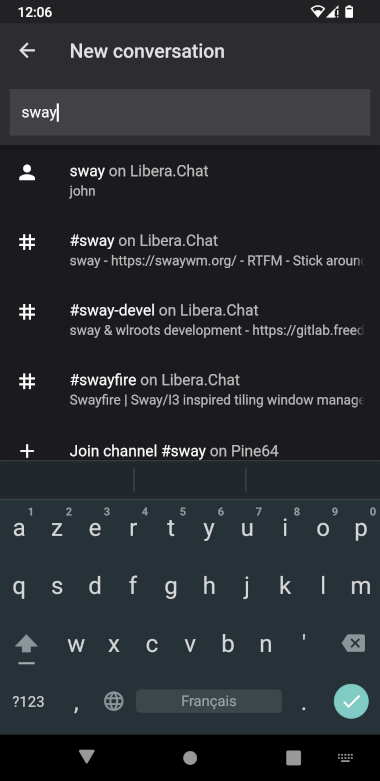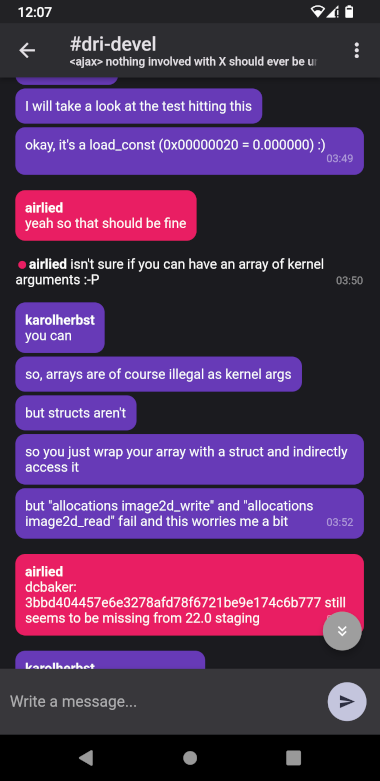Status update, April 2022
Hi! This month I’ve continued working on Goguma, my IRC client for Android.
I’ve released version 0.2.0 earlier today. Tons of new features and bug fixes
have been shipped! delthas has added a new old-school compact mode for the
message list, has implemented pinned and muted conversations, and has added a
new UI to manage IRC networks configured on the bouncer. Noah Loomans has
come up with a cool new look for /me messages. I’ve redesigned the UI to
create a new conversation, and added knobs to edit the user profile and channel
topics.




We now have our own F-Droid repository with nightly builds, so trying out Goguma should be easier than manually grabbing APK files. Goguma is also available on the official F-Droid repository, although the version published there lags behind.
On the soju bouncer side, delthas has implemented a new soju.im/search extension. This allows clients to search the server-side message history without having to download the full logs. I’ve added a tiny soju.im/no-implicit-names extension which allows clients to opt-out of some chatter sent when connecting. This is useful for mobile devices where re-connections are frequent, data plans are limited and latency is high. Last, delthas has added support for the echo-message extension for upstream servers in order to properly display messages mutated by the server (e.g. to strip formatting).
In SourceHut news, the initial release of hut has been published! Some
distributions have already started shipping it in their official repositories.
hut is now integrated in builds.sr.ht itself: hut will automatically pick up
the OAuth 2.0 token generated by the oauth directive. For example:
image: alpine/edge
packages:
- hut
oauth: meta.sr.ht/PROFILE:RO
tasks:
- hi: |
hut meta show
I’ve also resumed work on go-emailthreads again. It’s the successor to python-emailthreads which currently powers lists.sr.ht’s patch review UI. I’ve finished up the basics and integrated it into lists.sr.ht’s GraphQL API. The next step is to update the Python frontend to use data from the GraphQL API instead of using python-emailthreads.
The NPotM is libdisplay-info. This is a shared project with other Wayland developers (Pekka Paalanen, Sebastian Wick) and driver developers (AMD, Intel). The goal is to build a small library for EDID and DisplayID, two standards for display device metadata. Right now compositors don’t need to parse a lot of the EDID, but that’s going to change with upcoming color management support. Some interesting discussions have sparkled, but progress is slow. I guess that’s expected when collaboratively building a new library from scratch: it takes time to make everybody agree.
That’s all for now! See you next month.